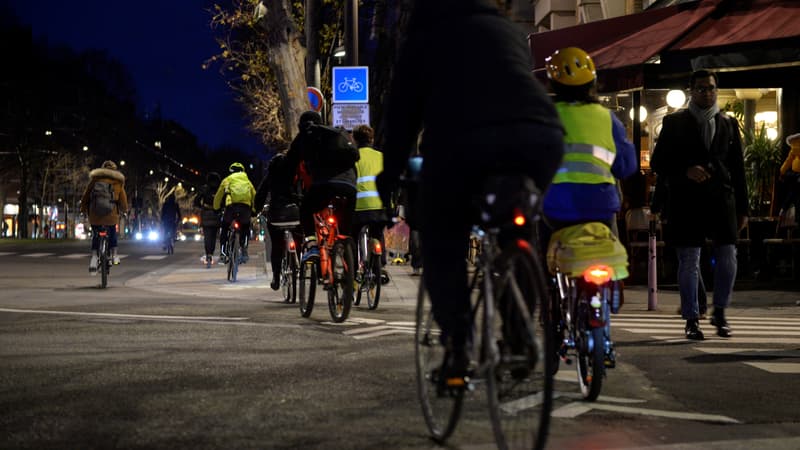Road Safety reiterates this Thursday the importance of being visible at night on public roads before the change to winter time on Sunday, a peak in accidents that is observed every year after the time change.
Risky period
“Between 5:00 p.m. and 7:00 p.m. night will fall when there is no school or work,” said Road Safety in a statement, which carried out an experiment before the time change, scheduled for the night from Saturday to Sunday, in order to raise awareness among Vulnerable road users.
The number of accidents involving a pedestrian increases an average of 34% in November compared to October, according to data from the National Interministerial Road Safety Observatory (ONISR) collected between 2019 and 2023.
Road Safety carried out “a test session of emergency stopping a vehicle, at night, in front of a pedestrian and a cyclist without and with retro-reflective clothing.”
Experience has shown that “in the headlights of a car traveling at 50 km/h, a pedestrian dressed in black is visible only 28 meters away”, while at this speed, a vehicle needs 31 meters to stop.
When we repeat the experience with a pedestrian wearing retroreflective clothing, he is visible from 44 meters away,” adds the inter-ministerial delegation.
Vulnerable users who are sometimes barely visible
Road Safety thus encourages vulnerable users to wear “light-colored clothing” and to opt for “reflective devices (vest, bracelet, gloves, backpack straps, school backpack, etc.).”
According to a study carried out this week by the Assurance Prévention association, more than eight in 10 French people (84%) say they are worried about their safety on the road when visibility decreases.
Cyclists are the most likely to feel vulnerable (90%), followed by scooter drivers (87%), motorcyclists (86%) and pedestrians (82%).
If adequate reflections are known – 70% of respondents believe they have them – they are not systematically applied: only 73% of pedestrians always use sidewalks when visibility is low and 72% do not wear reflective clothing.
One in two cyclists (50%) does not wear reflective accessories. Almost half (45%) of electric scooter users do not systematically turn on the lights.
The study was carried out online from October 1 to 3, 2024 by Harris Interactive for the Assurance Prévention association, with a sample of 2,111 people, representative of French people aged 18 and over (quota method).
Source: BFM TV


